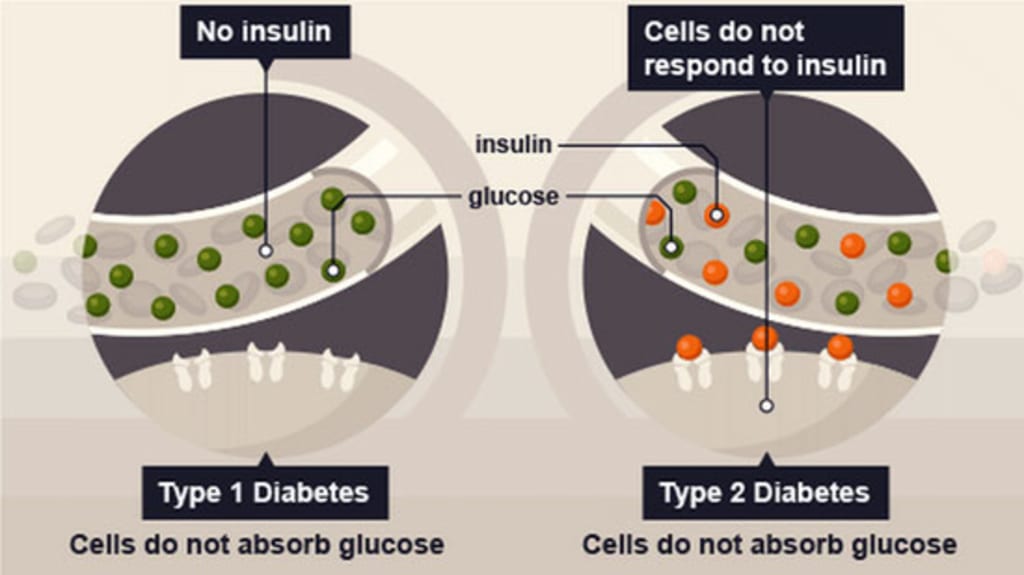Type 1 Diabetes: Understanding, Management, and Living with the Condition
Type 1 diabetes

Type 1 diabetes is a chronic autoimmune disease that affects millions of people worldwide. It is characterized by the body's inability to produce insulin, a hormone essential for regulating blood sugar levels. Managing type 1 diabetes requires a comprehensive understanding of the condition, diligent self-care, and the support of healthcare professionals. This article aims to provide an in-depth overview of type 1 diabetes, its causes, symptoms, treatment options, and tips for living a fulfilling life with the condition.
Understanding Type 1 Diabetes
Type 1 diabetes occurs when the body's immune system mistakenly attacks the insulin-producing cells in the pancreas. The exact cause is not yet fully understood, but genetic and environmental factors are believed to play a role. Unlike type 2 diabetes, which is commonly associated with lifestyle choices, type 1 diabetes is not preventable and cannot be cured.
Symptoms and Diagnosis
The onset of type 1 diabetes often occurs rapidly, and the symptoms can be severe. Common signs include excessive thirst, frequent urination, unexplained weight loss, fatigue, blurred vision, and increased susceptibility to infections. If you experience these symptoms, it is crucial to seek medical attention promptly. A healthcare professional will conduct blood tests to measure blood sugar levels and assess the presence of autoantibodies that attack insulin-producing cells.
Treatment Options
The cornerstone of type 1 diabetes management is insulin therapy. Since the body can no longer produce insulin, individuals with type 1 diabetes must replace it through regular injections or an insulin pump. Different types of insulin are available, including rapid-acting, short-acting, intermediate-acting, and long-acting, and your healthcare team will work with you to determine the most suitable insulin regimen for your needs.
Blood sugar monitoring is another vital aspect of managing type 1 diabetes. Regularly checking blood glucose levels helps individuals make informed decisions about insulin dosages, physical activity, and dietary choices. Continuous glucose monitoring systems and insulin pumps with integrated sensors have made monitoring more convenient and accurate.
Lifestyle Considerations
Living with type 1 diabetes requires a proactive approach to self-care. Adopting a well-balanced diet, regular physical activity, and stress management techniques are essential for maintaining stable blood sugar levels. It is important to work closely with a registered dietitian to create a meal plan that accommodates individual needs and preferences while ensuring optimal diabetes control.
Additionally, regular exercise offers numerous benefits, including improved insulin sensitivity, weight management, and cardiovascular health. However, individuals with type 1 diabetes must carefully manage their blood sugar levels before, during, and after exercise to prevent hypoglycemia or hyperglycemia. Consulting with a healthcare professional or certified diabetes educator can provide valuable guidance on exercising safely with type 1 diabetes.
Psychological and Emotional Well-being
Living with a chronic condition like type 1 diabetes can sometimes lead to emotional challenges. It is important to acknowledge and address these feelings, seeking support from loved ones, healthcare professionals, or diabetes support groups. Mental health professionals can also help individuals develop coping strategies and provide guidance on maintaining a positive mindset while managing diabetes.
Ongoing Research and Advances
Researchers and medical professionals are continually working to improve the lives of those with type 1 diabetes. Recent advancements include the development of closed-loop insulin delivery systems, also known as artificial pancreas systems. These devices combine continuous glucose monitoring and insulin pumps to automatically adjust insulin delivery based on real-time blood sugar levels. Other promising areas of research include islet cell transplantation, beta-cell regeneration, and immunotherapy to prevent the autoimmune destruction of insulin-producing cells.
Conclusion
Type 1 diabetes is a complex condition that requires lifelong management. While it presents unique challenges, individuals with type 1 diabetes can lead fulfilling lives with the right tools, support, and self-care. By staying informed, maintaining a healthy lifestyle, and collaborating closely with healthcare professionals, individuals with type 1 diabetes can effectively manage their condition and achieve optimal health and well-being. With ongoing research and advancements, there is hope for better treatment options and ultimately, a cure for type 1 diabetes in the future.
About the Creator
Enjoyed the story? Support the Creator.
Subscribe for free to receive all their stories in your feed.





Comments
There are no comments for this story
Be the first to respond and start the conversation.